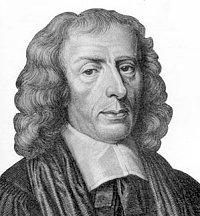
1614 - 1687 Person Name: Henry More (1614-1687) Author of "God is ascended up on high, alleluia" in The Oxford Hymn Book More, Henry, D.D., was b. at Grantham in 1614, and educated at Eton and Christ's College, Cambridge, where he graduated in 1635, and became a Fellow of his College in 1639. He declined various offers of high preferment. He spent his time mainly in the study of philosophy and as a private tutor. He died in 1687. In 1640 he published his Psychozoia, or the First Part of the Sony of the Soul, containing a Christiano-Platonic display of Life. In 1647 this was republished with additions as Philosophical Poems. His poems, collected and edited by Dr. Grosart, are included in the Chertsey Worthies Library. His "Philosopher's Devotion," beginning "Sing aloud! His praise rehearse," is given in Macdonald's England's Antiphon. His Memoirs were published in 1710. His Divine Dialogues with Divine Hymns added thereto were published in 1668. From a hymn in this work, beginning "When Christ His body up had borne," J. Wesley took 10 stanzas and moulded them into two hymns, which lie included in the Wesleyan Hymn Book, 1780, as "Father, if justly still we claim" (The Holy Spirit desired), No. 444; and "On all the earth Thy Spirit shower," No. 445. These hymns are in common use in Great Britain and America. [W. T. Brooke]
--John Julian, Dictionary of Hymnology (1907)
Henry More

